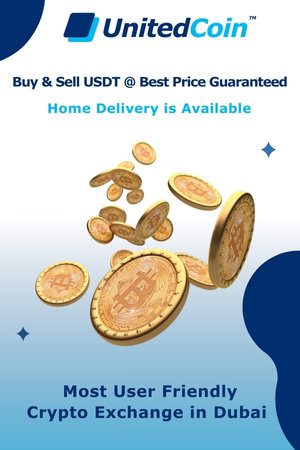Dubai, the crown jewel of the United Arab Emirates (UAE), has emerged as a beacon of innovation in the Middle East. This forward-thinking city is actively embracing blockchain technology and positioning itself as a global hub for the cryptocurrency industry. However, for those seeking to participate in this dynamic market, understanding the regulations surrounding selling USDT (Tether), a popular stablecoin pegged to the US dollar, is crucial.
This article delves into the intricacies of Dubai’s crypto regulations, specifically focusing on the legal aspects of selling USDT. We’ll explore the regulatory framework, the role of key authorities, compliance requirements, and available avenues for selling your USDT holdings.
Dubai’s Regulatory Landscape: A Balancing Act
Dubai’s approach to crypto regulation strikes a balance between fostering innovation and ensuring investor protection. The Virtual Assets Regulatory Authority (VARA), established in March 2022, serves as the primary governing body overseeing the crypto sector. VARA’s mandate encompasses licensing and regulating all activities related to virtual assets, including trading, custody, and issuance.
The Virtual Assets and Related Activities Regulations 2023 provide a comprehensive framework outlining the legal parameters for operating within Dubai’s crypto ecosystem. These regulations emphasize robust Know Your Customer (KYC) and Anti-Money Laundering (AML) compliance, ensuring transparency and combating financial crime.
While Dubai’s regulations are relatively new and continuously evolving, some key aspects are particularly relevant for selling USDT:
- Licensing: Businesses facilitating the buying and selling of cryptocurrencies, including USDT, require a license from VARA. The specific license type depends on the nature of the activity, such as operating a cryptocurrency exchange or providing custodial services.
- AML/KYC Compliance: VARA mandates stringent KYC and AML procedures. This involves verifying customer identities, assessing risk profiles, and monitoring transactions for suspicious activity. Crypto businesses must implement robust systems to comply with these regulations.
- Taxation: The current tax landscape for cryptocurrencies in Dubai remains under development. However, it’s advisable to consult with a tax professional to understand any potential tax implications associated with selling USDT.
Selling USDT: Available Avenues
There are several ways to sell your USDT in Dubai, each with its own advantages and considerations:
1. Licensed Cryptocurrency Exchanges:
Licensed cryptocurrency exchanges like Bybit or Binance UAE offer a secure and convenient platform for buying and selling USDT. These platforms typically have user-friendly interfaces, competitive rates, and deep liquidity pools, ensuring efficient execution of your trades. However, they may require KYC verification and charge trading fees.
2. Peer-to-Peer (P2P) Platforms:
P2P platforms connect buyers and sellers directly, allowing you to negotiate terms with other users. This approach can offer greater flexibility in pricing but may involve higher counterparty risk and require more effort to find a suitable buyer. Platforms like LocalBitcoins or Paxful facilitate P2P trading, but ensure they operate within Dubai’s regulatory framework.
3. OTC (Over-the-Counter) Trading:
OTC desk like UnitedCoin.ae cater to large-volume transactions, often dealing directly with institutional investors. This route might be suitable for those holding significant amounts of USDT but typically requires establishing a relationship with a licensed OTC broker.
4. Converting to Fiat Currency:
Some licensed exchanges and money service businesses (MSBs) allow converting USDT to fiat currency like AED (United Arab Emirates Dirham). This option provides direct access to traditional financial rails but might involve currency conversion fees.
Important Considerations:
- Security: Always prioritize security by choosing reputable, licensed platforms with robust security measures to protect your funds and personal information.
- Fees: Compare fees associated with different platforms and transaction methods to optimize your returns.
- Liquidity: Consider the liquidity of the chosen platform, especially for P2P transactions, to ensure you can find a buyer quickly and at a desirable price.
Staying Compliant: Essential Tips
Navigating the crypto space in Dubai requires adherence to established regulations. Here are some key tips to ensure a compliant selling experience:
- Choose Licensed Platforms: Only utilize platforms that hold a valid license from VARA. This ensures they operate within the legal framework and adhere to regulatory requirements.
- Complete KYC Verification: KYC verification is mandatory for most platforms. Provide accurate and complete information to facilitate a smooth onboarding process.
- Maintain Records: Keep detailed records of your USDT transactions, including purchase dates, amounts, and platform used. This can be crucial for tax purposes or potential audits.
- Seek Professional Advice: Consulting with a legal or tax professional can provide valuable guidance on navigating the evolving regulatory landscape and understanding any potential tax implications associated with selling USDT.
Conclusion: Dubai’s Crypto Future
Dubai’s commitment to fostering a robust and transparent crypto ecosystem is evident in its evolving regulatory framework. While the legal landscape is still taking shape, Dubai’s proactive approach positions it as a frontrunner in the global crypto space. For those seeking to sell USDT in Dubai, a thoughtful approach is key. By understanding the regulatory framework, choosing licensed platforms, and adhering to compliance requirements, you can participate in this dynamic market with confidence.




